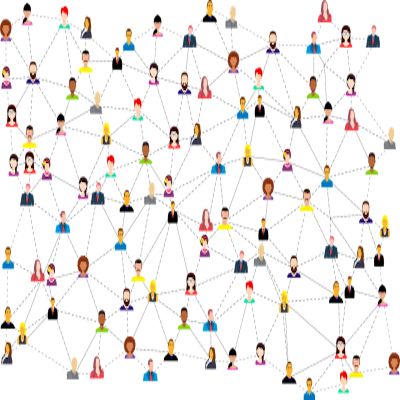IV Conference ISCAR Ibérico
The core theme contemplated will be the social changes happening at breakneck speed. These changes are understood to be secured in cultures and subcultures, supported by multiple technologies and communication settings.
Social changes are a fact. The recent economic crisis, the presence of digital technology in everyday life, the people working outwards in multiple directions, the traditional or new means of communication are all concepts which go towards describing or understanding social transformations, but none of them as stand alone. If social change is to exist we must be able to imagine an alternative society. We need to accept that a different world can be delivered in one way or another. This is where communication falls into context. We could think that these changes are directed towards being able to listen to many different voices and respect the rights of all people, but this is not the case. Both past and recent history has proven this. We need to reflect upon where we wish the social changes to lead to and how we can to contribute to this, through individual and collective actions.
Furthermore, these social changes are not easily understood without the cultures which support them or hide behind them. We may gain an understanding of these cultures through the resources people use to relate to their environment, to its problems and implications. It is here that the actions directing change may be better understood, as individual and collective actions, the reasons for which are not always explicit. The changes are linked to social structures and the actors who are able to move them in one direction of another.
Some of the actions explaining change may be the practices of people who are surrounded by tools that sometimes outstrip them or even control them. Culture is a product of the processes associated with the change in objects people use to transform the world, to adapt to it and which make communication possible. However, everything cannot be reduced to these objects alone in isolation. It is the combination of resources that people use, among them language, and which are handled every day. Individuals use language, media and computers that move codes to put artificial intelligence into practice.
Peoples’ speech, tools and practices converge in everyday life as a constantly active sphere and the source of any social change, underpinning individual or collective creativity. Innovation is the product of tiny changes happening in everyday life day by day, continuously. It is here, in peoples’ everyday lives that ideas and actions combine, into collective frameworks, subcultures which sometimes clash with one another and sometimes complement each other. It is only from these ideas and actions that it is possible to transform the world that surrounds us, composed of material objects, living organisms and cognitive thought.
To conclude, velocious social changes will be the central food for thought of this conference. These changes are understood to be secured in cultures and subcultures which, in one way or another, explain the human tactics used for survival in this ever-changing world. The International Society for Cultural and Activity Research (ISCAR), which was founded in 2002 (http://www.iscar.org), serves as a framework for the 4th ISCAR IBERICO CONFERENCE, continuing other meetings which took place in Madrid (2011), Girona (2014) and Seville (2017).
COORDINATION
- Pilar Lacasa – Universidad de Alcalá.
Rut Martínez-Borda – Universidad de Alcalá.
Laura Méndez Zaballos – Universidad Nacional de Educación a Distancia.
- Iris Barrajón Lara – Universidad de Alcalá.
- Alba García-Vega – Universidad de Alcalá.
SOCIAL MEDIA
- Julián de la Fuente Prieto – Universidad de Alcalá.
- Mohammad El Khamlichi – Universidad de Alcalá.
- Daniel Bernal Fernández – Universidad de Alcalá.
LOCAL COMMITIE
- Roberto Carlos Álvarez – Universidad de Alcalá.
Héctor del Castillo – Universidad de Alcalá.
Sara Cortés – Universidad de Alcalá.
Seila Castro – Universidad de Alcalá.
- Javier Díaz-Bajo – Universidad de Alcalá.
Raquel Echeandía – Universidad de Alcalá.
- Julián de la Fuente – Universidad de Alcalá.
Ana Belén García-Varela – Universidad de Alcalá.
María Ruth García-Pernía – Universidad de Alcalá.
Julia Sabina Gutierrez – Universidad de Alcalá.
Sara Infante – Universidad de Alcalá.
- Araceli Parres – Universidad de Alcalá.
Elba Lidia Sánchez-Regidor – Universidad de Alcalá.
- Jennifer Soto – Universidad de Alcalá.
- Emilio Torné – Universidad de Alcalá.
SCIENTIFIC COMMITIE
- Amelia Álvarez – Universidad Carlos III
- Fernando Canet – Universidad de Valencia.
César Coll – Universitat de Barcelona.
Mercedes Cubero – Universidad de Sevilla.
- Rosario Cubero – Universidad de Sevilla.
- Moisés Esteban-Guitart – Universitat de Girona.
Francisco García – Universidad Complutense de Madrid.
Antonio García-Jiménez – Universidad Rey Juan Carlos.
José Luis Lalueza – Universitat Autònoma de Barcelona.
José Luis Linaza – Universidad Autónoma de Madrid.
Beatriz Macías – Universidad Pablo de Olavide.
Antonio Maldonado – Universidad Autónoma de Madrid.
Manuel de la Mata – Universidad de Sevilla.
- María Marco – Universidad Pablo de Olavide.
Elena Martín Ortega – Universidad Rey Autonóma de Madrid.
- Teresa Mauri – Universitat de Barcelona.
- Virginia Martínez-Lozano – Universidad Pablo de Olavide.
- Nacho Montero – Universidad Autónoma de Madrid.
- Esther del Moral – Universidad de Oviedo.
- Patricia Núñez – Universidad Complutense de Madrid.
- Félix Ortega – Universidad de Salamanca.
- David Poveda – Universidad Autónoma de Madrid.
- María del Mar Prados – Universidad de Sevilla.
- Juan Daniel Ramírez – Universidad Pablo de Olavide.
- Pablo del Río – Universidad Carlos III.
- Cintia Rodríguez – Universidad Autónoma de Madrid.
- Alberto Rosa – Universidad Autónoma de Madrid.
- Andrés Santamaría – Universidad de Sevilla.
- Remedios Torrijos – IE Business School.
- Sonia Valle-de Frutos – Universidad Rey Juan Carlos.






